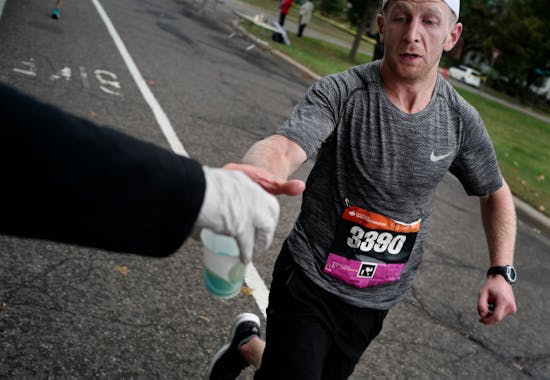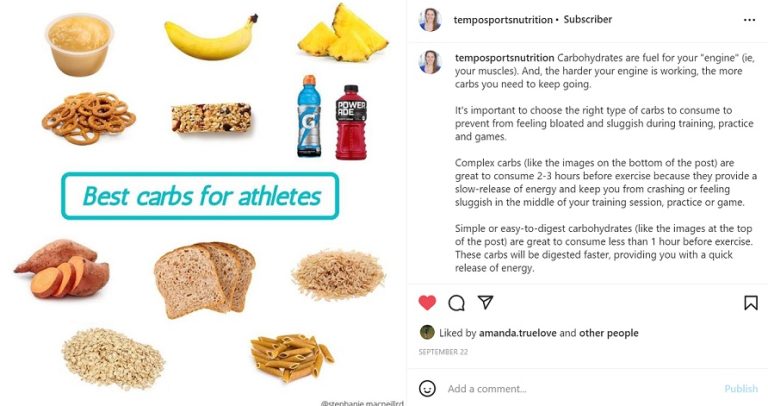Why is Hydration Important for Marathon Runners
Hydration is crucial for marathon runners to maintain performance and prevent dehydration-related complications. Proper fluid intake enhances endurance and helps regulate body temperature.
Marathon running is a strenuous physical activity that demands maximum effort from the body. It puts excessive stress on muscles, joints, and organs, leading to the loss of water and essential electrolytes through sweat. Failing to replenish these lost fluids can severely impact a runner’s performance and health.
Water is necessary for numerous bodily functions, including maintaining blood volume, transporting nutrients, and regulating body temperature. Without adequate hydration, athletes may experience fatigue, muscle cramps, dizziness, and even heatstroke. Hence, marathon runners need to prioritize hydration before, during, and after the race to ensure optimal performance and minimize the risk of dehydration-related issues.
The Importance Of Hydration For Marathon Runners
Proper hydration boosts marathon runners’ ability to perform optimally and sustain endurance.
Adequate fluid intake improves muscle function, mental focus, and overall physical performance.
Dehydration during a marathon can lead to muscle cramps, fatigue, dizziness, and even heat stroke.
- Severe dehydration may cause organ damage and life-threatening conditions.
- Adequate hydration is crucial to prevent these risks and ensure a safe and successful race.

Credit: styrkr.com
Hydration Strategies For Marathon Runners
Proper hydration is crucial for marathon runners to ensure optimal performance and reduce the risk of dehydration-related issues. Implementing effective hydration strategies before and during a race can significantly impact a runner’s overall performance and endurance. In this article, we will discuss two key aspects of hydration for marathon runners: the pre-race hydration plan and fluid intake during the race.
Preparing your body for a marathon starts well before the race day. One important aspect of your preparation is developing a pre-race hydration plan. It involves consuming enough fluids in the days leading up to the marathon to ensure your body is adequately hydrated.
Here are some key tips for your pre-race hydration plan:
- Drink plenty of water and other healthy fluids in the days leading up to the race.
- Avoid excessive consumption of caffeinated or alcoholic beverages, as they can dehydrate your body.
- Be mindful of your urine color. Aim for a pale yellow color, indicating proper hydration.
- Consider consuming electrolyte-rich drinks to replenish essential minerals lost through sweat.
Developing a pre-race hydration plan not only ensures that your body is properly hydrated on race day but also aids in avoiding any last-minute hydration issues.
Once the marathon begins, it’s crucial to maintain proper fluid intake throughout the race. The goal is to maintain optimal hydration levels and replace fluids lost through sweat.
Here are some guidelines for fluid intake during the race:
- Create a hydration schedule based on the race duration and your body’s needs. Aim to consume fluids at regular intervals.
- Carry a water bottle or use hydration stations along the marathon route to replenish fluids.
- Mix water and electrolyte drinks to replenish both fluids and essential minerals.
- Take small, frequent sips of fluids rather than gulping large amounts.
- Listen to your body’s signals and drink according to your thirst level.
Remember, hydration during the race should be a continuous effort to ensure your body stays properly fueled and hydrated.
Hydration-related Challenges During Marathons
Marathon runners face significant hydration challenges due to the strenuous physical exertion involved. Adequate hydration is critical for maintaining performance and preventing dehydration-related complications during the race. Proper fluid intake before, during, and after the marathon is essential to support optimal performance and overall well-being.
Dealing With Overhydration
During a marathon, overhydration can become a significant challenge for runners to overcome. Overhydrating, also known as water intoxication, occurs when a runner consumes excessive amounts of water or fluids without adequately replenishing the body’s electrolytes. This can lead to a condition called hyponatremia, which is characterized by abnormally low sodium levels in the blood. Hyponatremia can be incredibly dangerous and even life-threatening if left untreated. Therefore, marathon runners must be proactive in addressing and managing overhydration to ensure their safety and performance on race day. To avoid overhydration during a marathon, runners should keep the following tips in mind:- Drink fluids in moderation: While it is essential to stay hydrated, drinking too much water during a marathon can dilute the sodium and electrolyte levels in the body. Therefore, it is recommended to consume fluids in moderation and not solely rely on thirst as an indicator of when to drink.
- Consume electrolyte-rich drinks: To maintain electrolyte balance, incorporating sports drinks or electrolyte-enhanced beverages can be beneficial. These drinks contain essential minerals and salts that help replace what the body loses through sweat.
- Monitor urine color: Monitoring urine color can provide valuable insights into hydration levels. Pale yellow urine indicates proper hydration, while dark yellow urine may suggest dehydration.
- Listen to your body: Pay attention to signs of overhydration such as bloating, nausea, or sudden weight gain. If you experience these symptoms, slow down your fluid intake and seek medical attention if necessary.
Avoiding Hyponatremia
Hyponatremia is a potentially life-threatening condition that occurs when the concentration of sodium in the blood becomes dangerously low. This can be a result of excessive fluid intake without adequate sodium replenishment. To avoid hyponatremia during a marathon, runners can take the following preventive measures:- Consume sodium-rich snacks: Incorporating sodium-rich snacks, such as pretzels or salted nuts, throughout the race can help maintain sodium levels in the body.
- Seek medical guidance on sodium intake: Consulting with a healthcare professional or sports nutritionist can help determine the appropriate amount of sodium intake based on individual needs and sweat rate.
- Train with hydration in mind: During training, it is crucial to practice fueling and hydrating strategies to better understand personal hydration needs and develop appropriate habits.
- Consider individual sweat rate: Understanding the rate at which you sweat can help tailor your hydration plan more effectively. Weighing yourself before and after a training run can provide an estimate of fluid loss.
Choosing The Right Hydration Products
Choosing the Right Hydration Products is crucial for marathon runners to optimize performance and prevent dehydration-related issues. Proper hydration products can make a significant difference in the runner’s endurance and overall well-being. Let’s delve into the key aspects to consider when deciding between water and sports drinks, as well as understanding the importance of electrolyte replenishment.
Comparing Water Vs. Sports Drinks
Water: Pure and essential for hydration. Drink in small sips throughout the race
Sports Drinks: Provide electrolytes and energy for prolonged endurance. Choose ones with balanced sugar and sodium levels
Understanding Electrolyte Replenishment
Electrolytes: Vital for muscle function and hydration. Include sodium, potassium, magnesium, and calcium in your replenishment strategy.
Post-race Hydration And Recovery
As marathon runners, it’s crucial to understand the significance of post-race hydration and recovery to optimize performance and minimize the risk of injury. Post-race hydration is essential for replenishing lost fluids and electrolytes, aiding in muscle recovery, and restoring the body’s energy levels.
Rehydration Strategies
Effective rehydration is paramount for marathon runners after completing a race. Replenishing lost fluids and electrolytes should be the primary focus. When rehydrating, aim to consume fluids that contain electrolytes such as sodium and potassium to aid in the restoration of the body’s electrolyte balance. Including various options like sports drinks, coconut water, or electrolyte-enhanced water can help achieve this balance efficiently. Additionally, consuming water-rich foods such as fruits and vegetables can contribute to the rehydration process.
Recovery Nutrition
Aside from hydration, proper recovery nutrition plays an integral role in replenishing the body’s energy stores and aiding muscle repair. Consuming a balanced meal containing carbohydrates, proteins, and healthy fats within the first few hours post-race can facilitate efficient recovery. Carbohydrates help replenish glycogen stores, while protein is essential for muscle repair and growth. Including sources of healthy fats such as nuts, seeds, and avocado can aid in reducing inflammation and supporting overall recovery.

Credit: www.thersipo.com

Credit: www.facebook.com
Frequently Asked Questions On Why Is Hydration Important For Marathon Runners
Why Is Hydration Important For Runners?
Proper hydration aids in performance, prevents dehydration, and supports muscle function for runners. It’s essential for energy and endurance.
Do You Need A Hydration System For A Marathon?
Yes, you need a hydration system for a marathon. Staying hydrated is crucial for endurance, performance, and overall well-being. It helps maintain energy levels and prevents dehydration, which can lead to fatigue, muscle cramps, and even heatstroke. Make sure to drink water or sports drinks throughout the race to replenish fluids and electrolytes.
How Does Dehydration Affect A Marathon Runner?
Dehydration adversely impacts marathon runners, leading to reduced performance and potential health risks. It affects physical functioning, such as muscle fatigue and cramps, while increasing the risk of heatstroke. Proper hydration is crucial to maintain optimal performance and prevent potential injuries during endurance running.
Conclusion
Hydration is crucial for marathon runners to maintain peak performance and avoid risks of dehydration. Remember to drink water consistently throughout training and on race day. Proper hydration can enhance endurance and overall health, making it a key factor in achieving success in marathon running.
Stay hydrated and keep running strong!



